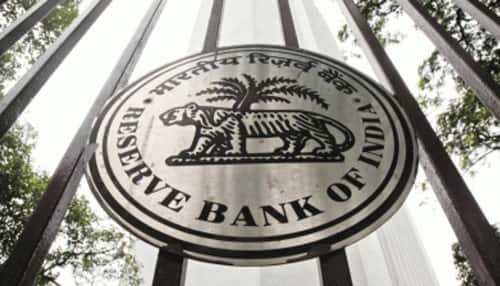- News>
- Personal Finance
Stop Charging Extra Interest On Loan Amount Not Received, Refund Excess Charges To Customers: RBI To Banks

RBI has asked banks and financial institutions to follow fair practices in charging of interest on loans by them.
New Delhi: The Reserve Bank of India (RBI) has directed banks to review unfair interest practices adopted by them. RBI yesterday (29 April) directed all commercial banks, primary (urban) co-operative banks, state co-operative banks, district central co-operative banks, non-banking financial companies (NBFCs), including microfinance institutions and housing finance companies, to take corrective action and refund excess charges to customers.
"The guidelines on Fair Practices Code issued to various Regulated Entities (REs) since 2003, inter-alia, advocate fairness and transparency in charging of interest by the lenders, while providing adequate freedom to REs as regards their loan pricing policy. During the course of the onsite examination of REs for the period ended March 31, 2023, the Reserve Bank came across instances of lenders resorting to certain unfair practices in charging of interest," RBI noted.
RBI said, some of the unfair practices observed by the central bank are charging of interest from the date of sanction of loan or date of execution of loan agreement and not from the date of actual disbursement of the funds to the customer. Similarly, in the case of loans being disbursed by cheque, instances were observed where interest was charged from the date of the cheque whereas the cheque was handed over to the customer several days later.
In the case of disbursal or repayment of loans during the course of the month, some REs were charging interest for the entire month, rather than charging interest only for the period for which the loan was outstanding, RBI said.
It also observed that in some cases, it was observed that REs were collecting one or more instalments in advance but reckoning the full loan amount for charging interest.
RBI said that these and other such non-standard practices of charging interest are not in consonance with the spirit of fairness and transparency while dealing with customers.
"These are matters of serious concern to the Reserve Bank. Wherever such practices have come to light, RBI through its supervisory teams has advised REs to refund such excess interest and other charges to customers. REs are also being encouraged to use online account transfers in lieu of cheques being issued in a few cases for loan disbursal," it added.
RBI in its circular has directed REs to review their practices regarding mode of disbursal of loans, application of interest and other charges and take corrective action, including system level changes, as may be necessary, to address the issues highlighted above.
